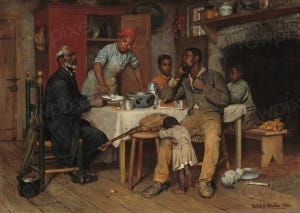Dear Readers,
We are revisiting Lorraine Hansberry's play, "A Raisin in the Sun." We have featured a clip from the play at the bottom of this page.
Context and Background on A Raisin in the Sun
Lorraine Hansberry (1930-1965) was a pioneering African American playwright and activist best known for her 1959 play A Raisin in the Sun. The play tells the story of the Younger family, an African American family living in Southside Chicago, as they anticipate a life insurance check from the death of the family patriarch.
"In My Mother's House, There is Still God" - An Analysis
In a climactic scene, the fiercely religious matriarch of the family, Lena Younger, utters the line "In my mother's house there is still God." This line carries deep meaning and has been interpreted in various ways.
Religion as a Guiding Force
The reference to God speaks to Lena's deep Christian faith which acts as an anchor and guiding force for her throughout the play's conflict. Her belief in God's plan gives her strength.

The Home as a Spiritual Sanctuary
Lena associates her childhood home with a divine presence - a sanctuary amidst external troubles. This underscores the importance of home and cultural roots in the African American experience.
Familial and Spiritual Legacy
By invoking her own mother's home, Lena connects herself to previous generations and represents the lasting power of spiritual inheritance passed down family lines.
Additional Hansberry Resources
"To Be Young, Gifted, and Black" - Hansberry's autobiography
"Les Blancs" - Another of Hansberry's plays about colonialism
Articles in The Nation, The Guardian, and academic journals reviewing productions of A Raisin in the Sun and analyzing its cultural significance.
Hansberry's work leaves a profound legacy and continues to resonate with audiences today as it explores timeless themes of family, faith, identity and racial injustice. Examining her iconic quote offers just one window into the richness of her writing.
Amanda Golden-Peace, the Misogynoir to Mishpat (M2M) Research Network © 2024



